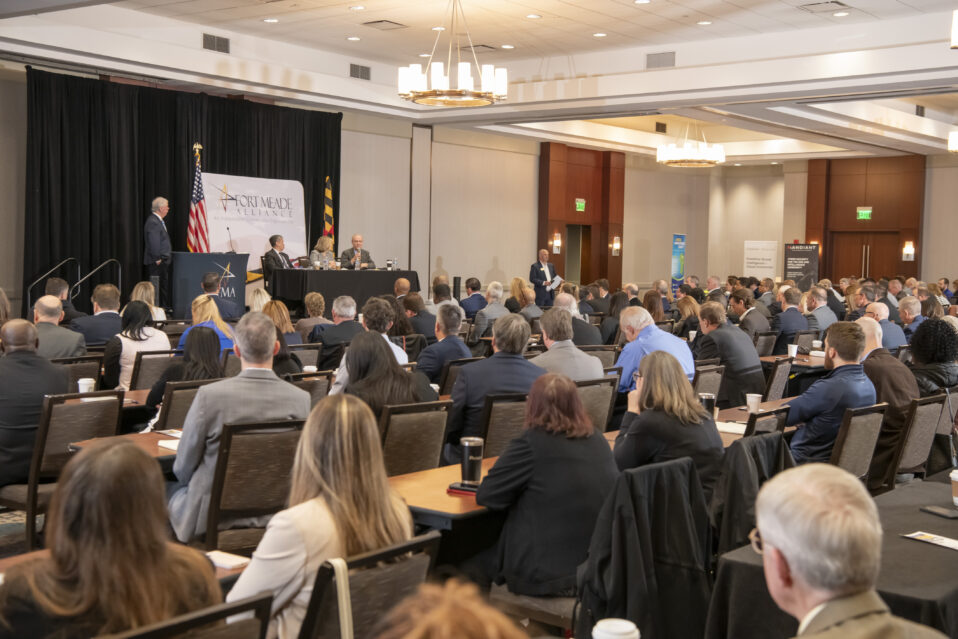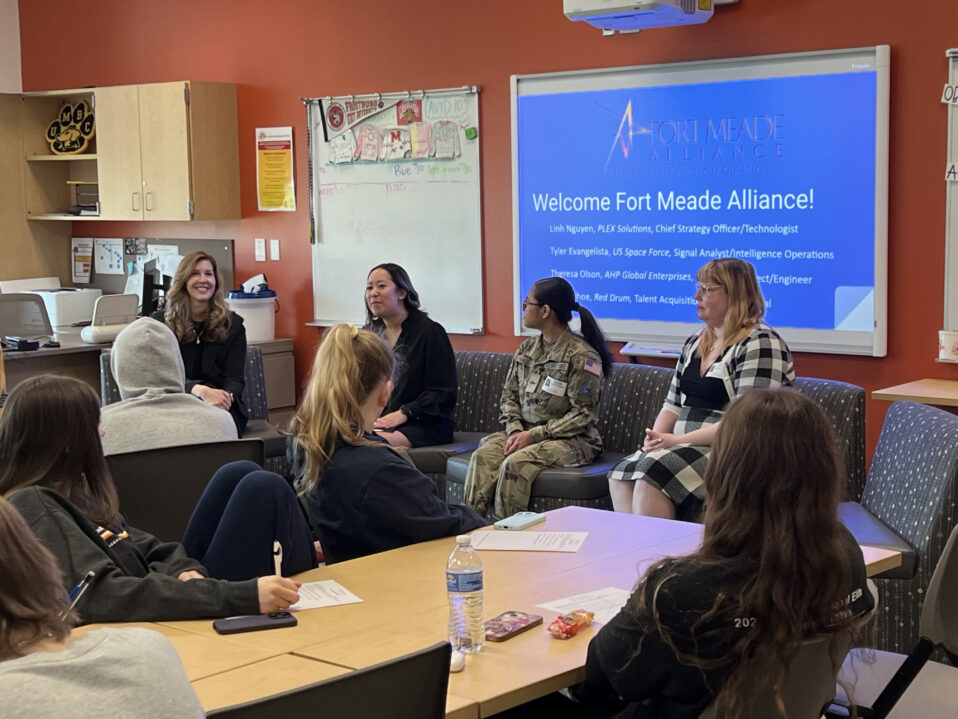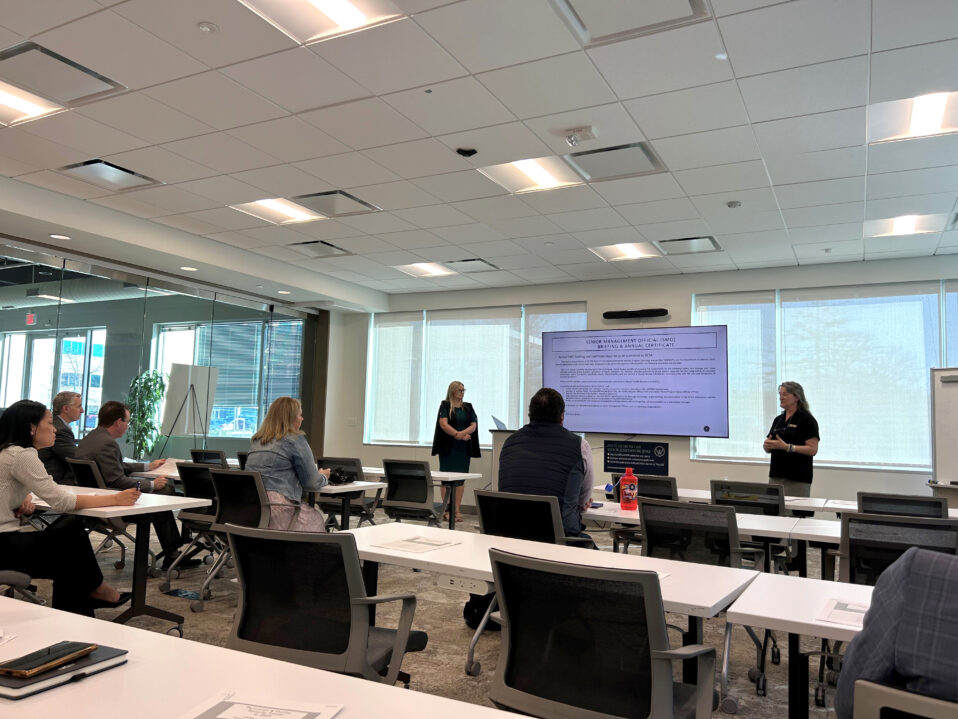In a webinar organized by the Fort Meade Alliance addressing 370 participants on Tuesday morning, Diane Dunshee and Mollie Quasny of the NSA provided additional details on the agency’s implementation of Section 3610 of the Coronavirus Aid, Relief and Economic Security (CARES) Act.
Summarizing the agency’s approach, Dunshee, the Deputy Director of Business Management & Acquisition and Deputy Senior Acquisition Executive for the agency, said “these are challenging times for everyone. We are striving to be as transparent and as helpful as possible.” Furthermore, she noted the agency’s commitment to “keeping the cash flow going,” as “the intent of the CARES act is to maintain our cleared highly skilled workforce. We know we have to keep the funds flowing in order to do that.”
During the webinar, Dunshee and Quasny provided several slides with information for contractors on billing and invoices under the CARES Act and answered several questions submitted in advance by participants. The slides and written answers to questions can be found on both the FMA website and the NSA ARC site, along with other guidance for navigating COVID-19 relief measures.
Quasny, Chief of the Maryland Procurement Office (MPO) discussed some of the recent changes in guidance, including a shift in CARES Act billable hours from January 21 to March 27. Due to the fact that “there was no retroactive language in section 3610 as there was in other sections of the act,” OMB has provided guidance that contractors may only bill CARES Act hours from the date the act was passed.
Another important change Quasny highlighted are the new guidelines from DoD and OMB indicating that profit and fee cannot be billed under the CARES Act. The agency and other government organizations did not receive additional funding from the Act, which means that any invoices submitted related to Section 3610 will be paid from existing funds.
To speed up processing times and allow CO’s to focus on reviewing and approving invoices, the NSA has developed a set of specific requirements for CARES Act billing. These requirements include separate invoices for CARES Act hours and supporting documentation. Dunshee directed participants to the CARES Act checklist available on the ARC site, allowing them to “go through and verify that it meets the appropriate criteria so we don’t have to reject [the] invoice.”
Dunshee cautioned that only individual companies that do not apply other received credits or funds under any other provision of the CARES Act may be eligible for Section 3610. There has been debate regarding how these restrictions will be applied (as a blanket restriction vs. employee to employee). To ensure they are compliant with rules regarding use of CARES Act relief measures, employers should consult their accounting and legal teams.
In regards to health and wellness, both Quasny and Dunshee urged participants to follow the federal, state and local guidelines related to COVID-19, as well as their company’s human resource process. They confirmed that the NSA will not require medical records as proof of employees who have tested positive or are in high risk categories, though there are provisions within the CARES Act for businesses to be reimbursed for the paid leave of individuals in these groups.
When discussing invoicing and payments, the agency “cannot commit to a certain time right now.” Dunshee reiterated that “we will continue to flow payment as quickly as we can.” Speaking to the delicate balance of maintaining business operations during this uncertain time, she said “we are committed to keeping invoices processing, but we are also committed to the safety of our employees.”
Recognizing that participants likely had more questions, Quasny and Dunshee will provide written answers via the NSA ARC site.



